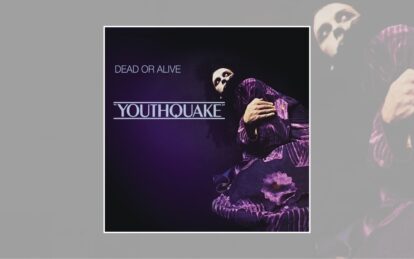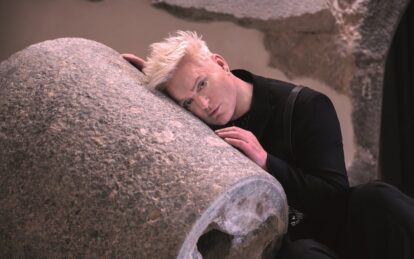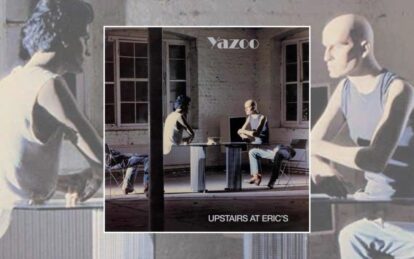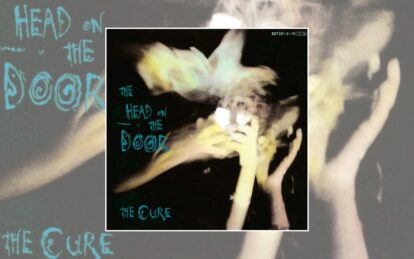Pop’s premier silver fox talks to Helen Jerome about being a reluctant producer and collaborating with Los Straitjackets…
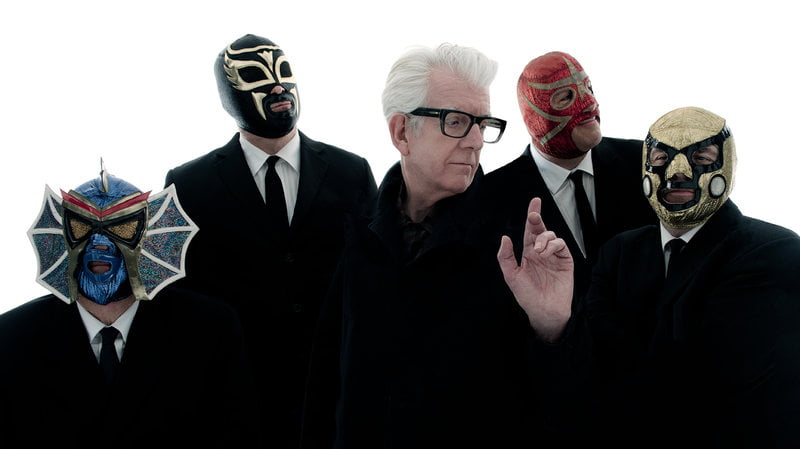
Nick Lowe turned 70 this year and remains one of the best-connected men in pop. He and his boarding school pal Brinsley Schwarz started bands together, including one named after Schwarz himself. A pioneer of pub rock due to his work with Dr Feelgood, Lowe became the house producer for new label Stiff Records, pioneering UK punk in the shape of The Damned’s debut, Damned Damned Damned. He also produced classic albums by Elvis Costello including Trust (1981) and Blood & Chocolate (1986). Nick played on Wreckless Eric’s Whole Wide World, and has worked with The Pretenders, Paul Carrack, Graham Parker and Rockpile with Dave Edmunds.
His own solo releases aren’t too shabby, from I Love The Sound Of Breaking Glass, Cruel To Be Kind, So It Goes and, of course, (What’s So Funny ‘Bout) Peace Love & Understanding, which Curtis Stigers covered on the bestselling soundtrack album of all time, The Bodyguard, with the royalties taking care of Lowe’s bills for several years. He’s now recording and touring with instrumental rock outfit Los Straitjackets.
Do you have any regrets that you only ended up producing one of The Pretenders’ songs, Stop Your Sobbing?
No, not at all. I don’t think Chrissie [Hynde] would have had the success she had if I’d have produced her. I don’t think I had the chops. Chris Thomas was a much better pop record producer than I am – or was, because I don’t really do it anymore.
You made Elvis Costello’s classic 1980 album Get Happy!! – how did you squeeze 20 tracks like High Fidelity and I Can’t Stand Up For Falling Down onto a single album?
I seem to remember that we did it in a very good studio in Holland – and we were very pleased with High Fidelity. It was a really good record. The thinking was at that time that the more music you put on a side of vinyl, the closer the grooves are to each other. And if the grooves are really close you can’t get them very deep. So you lose volume; you can’t get the record loud enough, that’s the problem. That’s why they started cutting disco and dance records on 12″ vinyl, so you could get a really wide groove and get plenty of bass and volume out of the record.
You were initially slated to work on Squeeze’s East Side Story. Why didn’t that happen?
I may be wrong, but I’ve got a feeling that Squeeze themselves weren’t that keen on me doing it. I think some of them were, and some weren’t. I don’t really feel bad about those ups and downs, because I was such a reluctant record producer. I fell into it and never thought I was much good. I was just very lucky with the people I worked with, and my technique – well, I call it a technique [laughs] – I just used to encourage people to go further than they thought they could go.
What was it like producing a vocalist like Paul Carrack on 1982’s Suburban Voodoo?
Fantastic – and we’re still very good friends. In fact, we occasionally have this trio that we do together live, at festivals. It’s me and Paul and Andy Fairweather-Low; we’ve got an acoustic guitar trio and it’s really good fun. We do the tracks we’re known for, plus a few obscure country and pop songs.
Is it harder when you’re producing your own songs, like …Breaking Glass and Cruel To Be Kind?
That’s a good question. To a certain extent it is harder, because I’m a fairly lazy person. I find it hard to get motivated. Once I get interested it’s fine. So yes, I did find it harder to do my own stuff, but I took energy from the people I got to help me with it – the musicians I got to play on it, plus the set-up I was with back in those days, with Stiff Records and Jake Riviera and those people. We wanted to have a big output to show that we meant business, so that kicked my arse!
How does it feel being on the road and recording with Los Straitjackets?
It’s definitely fun! They’re a fantastic group and I’m lucky to be involved with them.
Helen Jerom
Classic Pop may earn commission from the links on this page, but we only feature products we think you will enjoy.


